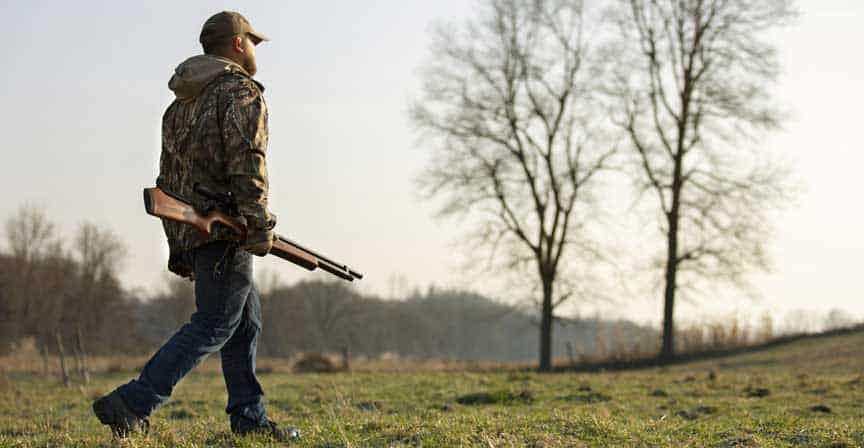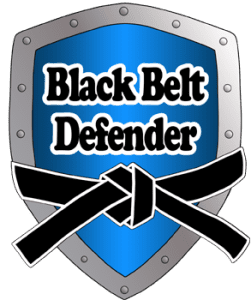
free shipping on orders over $49
We're having a 15% off sale on all our products. Enter your email below to be notified about future sales.




When society crumbles and the norms that hold us together disintegrate, the world becomes a stage for moral dilemmas that can challenge even the most steadfast principles. In the language of self-defense, martial arts, and survivalism, SHTF (Shit Hits The Fan) scenarios often focus on physical preparedness—stockpiling supplies, mastering combat techniques, and ensuring perimeter security. But what about the ethical choices that come into play? Are you a Guardian, preserving what’s left of human decency? Or do you become a Marauder, where survival is an end that justifies all means? This article delves into the complex tapestry of ethical choices in a post-apocalyptic world and offers guidance on how to navigate these murky waters.
The collapse of a stable society brings with it a profound upheaval, not just in the physical sense, but in the moral landscape as well. In normal circumstances, our ethical decisions are often guided by a clear set of laws, cultural norms, and religious beliefs. These frameworks provide a structure that helps delineate right from wrong, offering a moral compass that governs our actions and decisions. However, in a situation where these societal structures crumble, the clarity of these ethical boundaries often crumbles with them. Here’s a deeper look into the complexities of moral decision-making in times of societal collapse:
1. The Disintegration of Established Norms: When the usual societal order disintegrates, the rules and norms that once governed behavior can lose their authority. This can lead to a state of moral ambiguity, where actions previously deemed unacceptable may become necessary or justifiable.
2. Survival vs. Morality: In a crisis, the instinct for survival can conflict with moral principles. People may find themselves facing dilemmas where the choice to survive comes at a moral cost, forcing them to reevaluate their understanding of right and wrong.
3. Redefining Ethics in Crisis: The challenge in such times is to navigate this new ethical landscape. Individuals may need to develop a new set of moral guidelines, perhaps prioritizing the preservation of life and dignity above societal norms that no longer apply.
4. The Role of Leadership and Influence: In the absence of traditional societal structures, individuals or groups who can provide leadership and moral direction become crucial. Their influence can help shape the new ethical norms that emerge in a destabilized society.
5. The Importance of Empathy and Compassion: Even in times of chaos, the human qualities of empathy and compassion remain essential. They can guide individuals to make decisions that, while difficult, are grounded in a sense of humanity and concern for others.
6. Learning from History: History is replete with examples of societies undergoing major upheavals. Reflecting on these can provide insights into how moral frameworks can be reshaped in times of crisis.
7. The Power of Community: Building and maintaining a sense of community can help in preserving ethical norms. Communities can provide a collective moral compass that helps individuals navigate ethical dilemmas.
8. The Need for Personal Reflection: In times of societal collapse, individuals are often called to engage in deep personal reflection to understand their core values and principles, which can guide their decisions in the face of moral ambiguity.
The collapse of societal norms presents profound ethical challenges. It forces individuals to reassess their moral beliefs and make choices in contexts that were previously unimaginable. In these times, the true test of character emerges, as each person must find a balance between the instinct for survival and the maintenance of ethical integrity. This journey is complex and deeply personal, highlighting the resilience and adaptability of the human spirit.
In the grim reality of a post-apocalyptic world, the scarcity of resources and the need for self-preservation often push ethical boundaries to their limits. Individuals are frequently confronted with scenarios that challenge their moral compass, forcing them to make decisions that, under normal circumstances, would be unthinkable. Let’s delve deeper into some of these challenging scenarios and the ethical dilemmas they pose:
1. The Dilemma of Resource Scarcity:
2. Navigating Defense and Offense:
3. Trust in a World of Strangers:
Other Thoughts:
Navigating these ethical dilemmas requires a deep introspection of personal values and a constant balancing act between survival instincts and moral principles. In a post-apocalyptic world, the lines between right and wrong are often blurred, and decisions can rarely be seen in black and white. The choices made in these scenarios reflect not just the instinct to survive but also the enduring strength of human values and ethics, even in the most trying of times. In the end, these decisions shape not just the chances of physical survival but also the preservation of our humanity.
In times of crisis, such as a post-apocalyptic scenario, making ethical decisions can be incredibly challenging. The complexity of situations often calls for a deeper understanding of various ethical frameworks to guide decision-making. Each of these frameworks offers a different approach to determining what constitutes a “right” or “ethical” action under extreme circumstances. Let’s expand on some key ethical theories that can influence decision-making in crisis situations:
1. Utilitarianism: The Greater Good Over Individual Needs:
2. Deontological Ethics: Duty and Adherence to Rules:
3. Virtue Ethics: Emphasizing Moral Character:
4. Situational Ethics: Flexibility in Moral Judgments:
Understanding these different ethical frameworks can provide valuable insights when faced with tough moral choices in crisis situations. Each framework offers a unique perspective on how to approach difficult decisions, highlighting the importance of considering various angles and implications. In the end, ethical decision-making in extreme situations often involves balancing these different approaches, guided by both moral reasoning and the pragmatics of survival.
Martial arts, transcending mere physical training, are deeply rooted in ethical principles that shape not only the practitioner’s skills but also their moral compass. In a world dominated by the struggle for survival, the philosophies underlying martial arts can offer a guiding light in making ethical decisions, particularly in self-defense scenarios. Here’s an expanded view of how martial arts philosophies can be applied in situations where survival is the primary goal:
1. The Balance of Respect and Survival:
2. The Discipline of Restraint:
3. Honor and the Guardian Ethos:
4. Defensive, Not Aggressive:
5. Adaptability and Judgement:
Incorporating martial arts philosophies into survival strategies offers a balanced approach to self-defense. It’s about harnessing the physical skills learned through martial arts in a way that is mindful, respectful, and ethical. This approach not only ensures physical survival but also the preservation of one’s integrity and humanity in the face of adversity. In essence, the martial artist in a survival situation becomes a guardian, embodying strength tempered with wisdom and compassion.
Ethical Navigation in a Post-Apocalyptic World: The Guardian vs. The Marauder
The landscape of a post-apocalyptic world presents not only physical challenges but also profound moral quandaries. In such an environment, where societal norms and laws may no longer hold sway, ethical dilemmas become a constant companion, interwoven into the fabric of daily survival. Here’s an expanded view on balancing physical preparedness with moral vigilance:
1. The Weight of Ethical Choices:
2. Physical vs. Moral Preparedness:
3. The Guardian Ethos:
4. The Marauder’s Path:
5. Ethical Dilemmas as a Constant Companion:
The choices you make in a post-apocalyptic world go beyond mere survival; they reflect your identity and ethics. As you prepare physically for the challenges of such a world, also engage in preparing morally, contemplating the kind of legacy you wish to create. In a landscape stripped of its norms, your actions and decisions paint a picture of who you are: a Guardian upholding the remnants of humanity, or a Marauder in a ruthless quest for survival. Ultimately, the path you choose will shape not only your fate but also the fabric of the new world emerging from the ashes.
In a world stripped of its societal norms, the choices you make could be your ultimate legacy, defining you as a Guardian of what’s left of human decency or a Marauder in a free-for-all struggle for survival. Choose wisely.
As always, be safe and be prepared.
See Also:
Black Belt Defender
1867 Caravan Trail #105
Jacksonville, FL 32216-2006
Call us toll-free: (800) 859-5566
Mon-Fri: 9:00 am – 5:00 pm EST
NH based, FL Warehouse
Online Orders: 24/7/365

